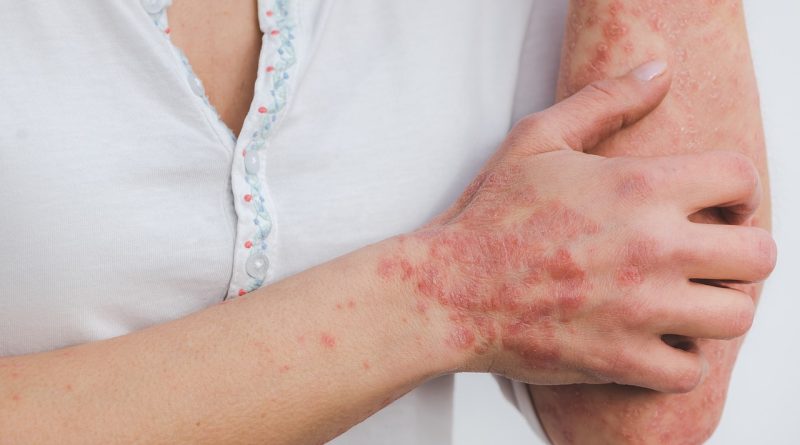Skin disease Psoriasis
Skin disease Psoriasis
Living with psoriasis can be challenging, affecting not only your physical health but also your emotional well-being. From the perplexing nature of its symptoms to the burstiness of flare-ups, navigating life with this chronic condition requires patience, understanding, and knowledge. In this article, we’ll delve into the intricacies of psoriasis, exploring its various aspects, treatment options, and lifestyle adjustments to help you manage this condition more effectively.
Introduction
Psoriasis is more than just a skin condition; it’s a chronic autoimmune disease that affects millions of people worldwide. Characterized by red, scaly patches on the skin, psoriasis can cause discomfort, embarrassment, and even pain for those living with it. While the exact cause remains elusive, researchers believe a combination of genetic predisposition and environmental factors contributes to its development.
What is Psoriasis?
Psoriasis is a chronic autoimmune condition that accelerates the skin cell turnover process, leading to the rapid buildup of cells on the skin’s surface. This excessive cell growth results in the formation of thick, red patches known as plaques. These plaques can appear anywhere on the body but are most commonly found on the elbows, knees, scalp, and lower back.
Types of Psoriasis
There are several types of psoriasis, each with its distinct characteristics:
- Plaque Psoriasis: The maximum not unusual place form, characterized via way of means of raised, purple patches blanketed with a silvery-white buildup of lifeless pores and skin cells.
- Guttate Psoriasis: Often triggered by bacterial infections, this type appears as small, red spots on the skin.
- Inverse Psoriasis: Found in skin folds like the armpits and groin, presenting as smooth, red lesions.
- Pustular Psoriasis: Characterized by white pustules surrounded by red skin, typically on the hands and feet.
- Erythrodermic Psoriasis: A rare and severe form, causing widespread redness and scaling of the skin.
Understanding the type of psoriasis you have is crucial for effective management and treatment.
Causes of Psoriasis
The exact cause of psoriasis remains unknown, but several factors may contribute to its development:
- Genetics: Family history plays a significant role, with many individuals inheriting a predisposition to the condition.
- Immune System Dysfunction: Psoriasis is taken into consideration an autoimmune disease, wherein the immune machine mistakenly assaults healthful pores and skin cells.
- Triggers: Certain triggers such as stress, infections, medications, and environmental factors can exacerbate psoriasis symptoms.
Identifying and avoiding triggers can help reduce the frequency and severity of flare-ups.
Symptoms of Psoriasis
Psoriasis symptoms vary depending on the type and severity of the condition but commonly include:
- Red patches of skin covered with thick, silvery scales
- Dry, cracked pores and skin that could bleed
- Itching, burning, or soreness
- Thickened or ridged nails
- Swollen and stiff joints (psoriatic arthritis)
If you experience any of these symptoms, it’s essential to consult a healthcare professional for an accurate diagnosis.
Diagnosis
Diagnosing psoriasis usually involves a physical examination by a dermatologist or healthcare provider. Sometimes, a skin biopsy may be necessary to confirm the diagnosis. Additionally, medical and family history may provide valuable insights into psoriasis or related conditions.
.Treatment Options for skin disease psoriasis
While psoriasis has no cure, various treatment options can help manage symptoms and improve quality of life:
- Topical Treatments: Creams, ointments, and shampoos containing corticosteroids, retinoids, or vitamin D analogs can reduce inflammation and slow skin cell growth.
- Phototherapy: Exposing the skin to ultraviolet (UV) light can help reduce inflammation and slow the growth of skin cells.
- Systemic Medications: Oral or injectable medications may be prescribed for moderate to severe psoriasis, including biologics, immunosuppressants, and retinoids.
Treatment choice depends on the type and severity of psoriasis, individual preferences, and medical history.
1. Understanding Psoriasis
Types of Psoriasis
Psoriasis manifests in various forms, including plaque psoriasis, guttate psoriasis, and inverse psoriasis. Each type presents unique challenges and requires tailored management strategies.
Symptoms and Causes
Common symptoms of psoriasis include itching, inflammation, and flaky skin. While the exact cause remains unclear, factors like genetics, immune system dysfunction, and environmental triggers play a role in its development.
.2 Lifestyle Changes
In addition to medical treatments, certain lifestyle modifications can help manage psoriasis symptoms and improve overall well-being:
- Maintain a Healthy Diet: Eating a balanced diet rich in fruits, vegetables, lean proteins
- Dry, cracked pores and skin that could bleed
- Itching, burning, or soreness
- Thickened or ridged nails
- Swollen and stiff joints (psoriatic arthritis)
If you have any of those symptoms, it is important to seek advice from a healthcare expert for a proper diagnosis.
Managing stress, quitting smoking, and avoiding alcohol can help reduce psoriasis flare-ups. Practicing relaxation techniques like yoga and meditation promotes overall wellness, supporting skin healing
.3 Impact of Mental health
Living with psoriasis can take a toll not only on physical health but also on mental well-being. The visible symptoms of psoriasis, such as red, scaly patches, can lead to feelings of self-consciousness, embarrassment, and low self-esteem. Coping with the chronic nature of the condition and the unpredictability of flare-ups can cause stress, anxiety, and depression in individuals affected by psoriasis. It’s essential to recognize the psychological impact of psoriasis and prioritize mental health support alongside physical treatment to ensure holistic well-being.
-
4. Natural Remedies for Psoriasis
Diet and Nutrition
Certain foods can exacerbate inflammation, while others possess anti-inflammatory properties. Incorporating omega-3 fatty acids, fruits, vegetables, and probiotics into your diet can support skin health.
Herbal Remedies
Herbs like aloe vera, turmeric, and neem have been used for centuries to soothe irritated skin and reduce inflammation. Their natural compounds offer promising results without the side effects of conventional medications.
5. Efficacy of Natural Remedies
Scientific Evidence
While research on natural remedies for psoriasis is ongoing, several studies highlight their potential efficacy. Components like curcumin in turmeric and polyphenols in green tea demonstrate anti-inflammatory and antioxidant properties.
Success Stories
Many individuals have experienced significant improvement in their psoriasis symptoms through natural remedies. Personal anecdotes and testimonials attest to the transformative power of holistic approaches.
6. Practical Tips for Enactment;
Incorporating Natural Remedies into Daily Life
Integrating natural remedies into your daily routine requires commitment and consistency. Keep a food diary, experiment with herbal supplements, and prioritize self-care practices to optimize results.
Monitoring Progress
Track changes in your skin condition, mood, and overall health to gauge the effectiveness of natural remedies. Consult with a healthcare professional to adjust your regimen as needed and ensure safe management.
7. Conclusion
Recap of Benefits of Natural Remedies
Exploring natural remedies for psoriasis offers a gentle yet effective alternative to traditional treatments. By addressing underlying imbalances and promoting holistic wellness, these remedies empower individuals to take control of their health.
Encouragement for Exploration
While managing psoriasis can be challenging, the journey toward healing is unique for each individual. Embrace the possibilities of natural remedies, and embark on a path of self-discovery and empowerment.
8. FAQs
Are natural remedies safe for everyone?
Natural remedies can vary in safety and efficacy depending on individual health conditions and allergies. It’s advisable to consult with a healthcare provider before incorporating them into your regimen.
How long does it take to look consequences of herbal remedies?
The timeline for experiencing improvements with natural remedies can vary greatly among individuals. Consistency and patience are key, as noticeable changes may take weeks to months.
Can natural remedies completely cure psoriasis?
While natural remedies can effectively manage symptoms and promote skin health, there’s no guaranteed cure for psoriasis. However, they can significantly improve quality of life and reduce flare-ups.
Should I consult a doctor before trying natural remedies?
Yes, consulting with a healthcare professional is essential, especially if you’re already receiving traditional treatments or have underlying health conditions. They can provide personalized guidance for skin disease psoriasis and ensure safe integration with your current regimen.
Are there any side effects of using natural remedies for psoriasis?
While natural remedies are generally well-tolerated, some individuals may experience allergic reactions or interactions with medications. It’s important to monitor for any adverse effects and seek medical advice if concerns arise.



